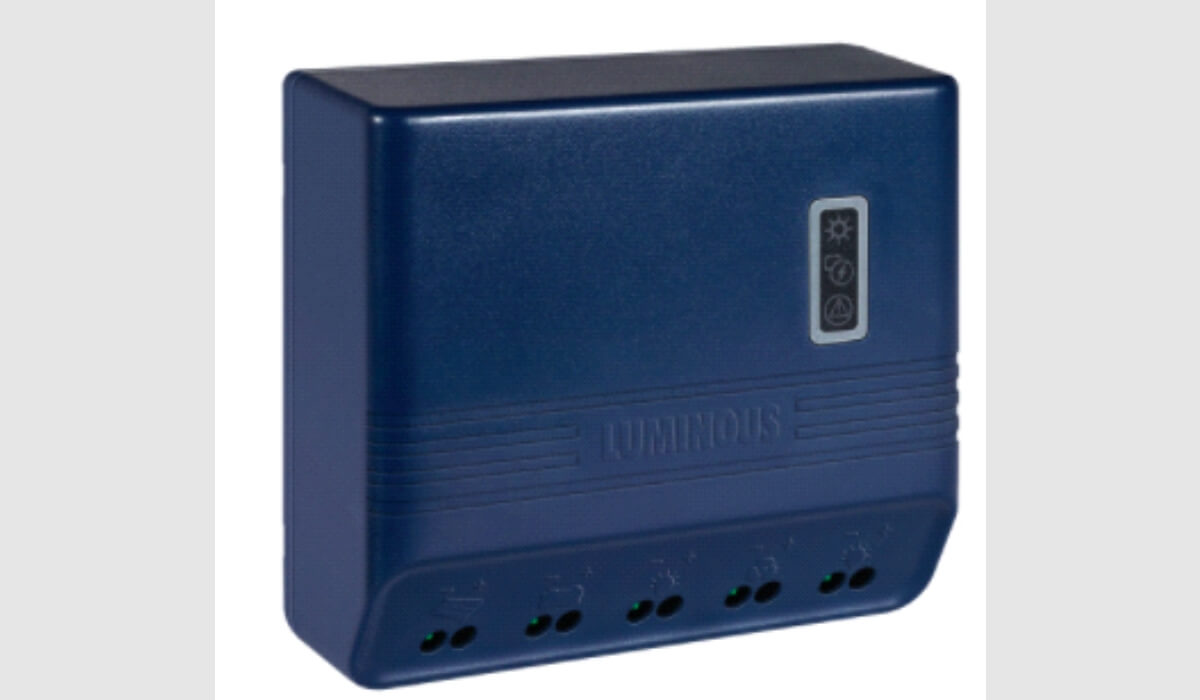While most of us largely associate solar power plants with photovoltaic (PV) panels, there are several other key elements that are essential for energy production. These include the solar inverter, battery, connectors, cables, and electrical wiring. However, another key component of solar PV systems is the solar charge controller, an electronic device that is crucial for the solar plant’s efficiency and smooth operation.
In simple terms, a solar charge controller is used to regulate the current & voltage flow from the PV modules to the solar battery. Its primary function is to prevent battery overcharge during the day and ensure electricity doesn’t transfer back to the modules and drain the solar battery at night. This not only extends the battery’s service life and improves performance but also reduces safety risks such as short circuits, making solar charge controllers an indispensable part of PV systems.
However, there is still a lack of awareness around solar charge controllers, which is why this article will address some common questions to help consumers better understand the device. Let’s get started!
1. What are The Features of a Solar Charge Controller?
A solar charge controller has several features, such as:
- Reverse current protection to prevent battery drainage during the night
- Multilevel/multistage charging to avoid battery overcharge and improve performance
- Low voltage disconnection to protect against overvoltage and enhance service life
- Lighting control and load control based on the time of day
- LCD display for easy access to information like voltage level, charging status, and more
2. What are the Types of Solar Charge Controllers Available in the Market?
Solar charge controllers are classified based on their technology, which is available in two options: Pulse Width Modulation (PWM) and Maximum Power Point Tracking (MPPT). Let’s look at the difference between the two:
| Pulse Width Modulation (PWM) Solar Charge Controller
|
Maximum Power Point Tracking (MPPT) Solar Charge Controller
|
|
| Efficiency | Average efficiency, up to 65%
|
High efficiency, up to 95% |
| Cost | Budget-friendly as the cost is not too high | Cost is high compared to PWM solar charge controllers
|
| Size | Typically small-sized due to lesser capacity | Designed to support high-capacity solar panels but generally compact-sized
|
| Application | Mostly used for small solar power systems and panels.
|
Widely used for large solar power systems and panels. |
Additionally, while PWM solar charge controllers have been in use for years, MPPT solar charge controllers are equipped with new technology. However, the choice between the two depends on the capacity of the panels, the application, your power requirement, and your budget.
3. Are Solar Charge Controllers Necessary for Off-Grid PV Systems?
Yes, it is somewhat necessary to install a solar charge controller for off-grid solar PV systems. Doing so is important to prevent overcharge, which can drastically reduce the battery’s service life. Additionally, solar charge controllers are essential to enhance the solar battery’s performance and efficiency, plus ensure optimal power production. Moreover, they help prevent safety risks such as short circuits and fuses, making them a critical component of PV systems.
4. How Can You Select the Solar Charge Controller’s Rating?
When it comes to selecting the solar charge controller’s rating, it primarily depends on the voltage and current produced by the solar panels in the initial stages of energy production. All this information is typically provided with the PV modules, usually displayed on a sticker placed on the panels’ backside. However, the general rule of thumb dictates that the solar charge controller’s rating should be at least 20% higher than the panels’ maximum voltage and current production.
5. Where Should You Purchase Solar Charge Controllers From?
As discussed, solar charge controllers are a vital component of solar power systems. Therefore, it is best to purchase them from reliable and trusted solar solution providers such as Luminous. Luminous is one of India’s leading companies in the solar product market, and they offer high-grade, efficient, and best-in-class solar charge controllers.
Even better, Luminous offers a range of other products and services to help consumers embark on their journey towards clean energy. Explore their website now!





